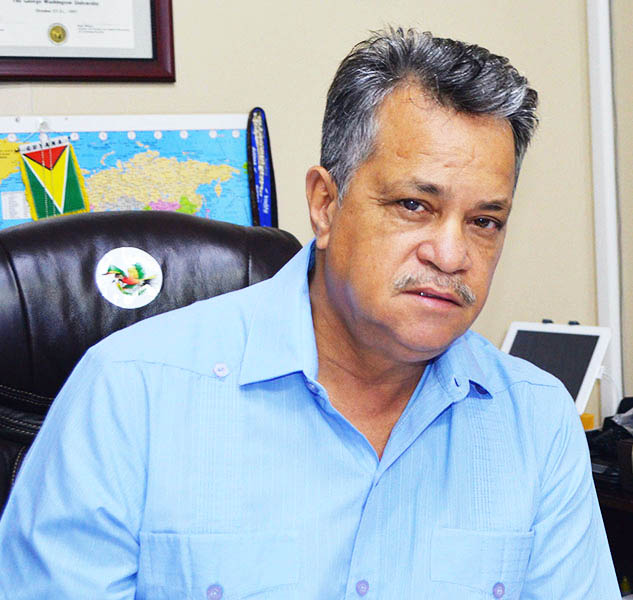Five days before President David Granger acceded to the GECOM declaration that his coalition had lost the 2020 General Elections, the US White House had told the Private Sector Commission (PSC) it was preparing to institute economic sanctions against persons here, according to National Security Advisor and former PSC Chairman Gerry Gouveia.
According to Gouveia, himself, current Deputy Ambassador to the US, Zulfikar Ally and now Minister in the Ministry of Public Works, Deodat Indar who were then part of the PSC’s governance committee, kept the United States updated on elections events here and were called to a virtual meeting to be briefed by the White House on proposed sanctions, shortly before Granger acceded.
“We were called on the 28th of July [2020]. And they said that they wanted to have a video call; a Zoom call. It was a Zoom call that they wanted and the three people that were always dealing with them were Indar, myself and Zulfikar… we activated the Zoom call. And when they came on, they said they wanted us to know that the White House had just agreed and instructions and a decision has been taken to take the sanctions to another level, which was going to be economic sanctions against the individuals,” Gouveia told Stabroek News in a recent interview.
The US had already imposed visa sanctions on APNU+AFC officials and persons connected to stalling the declaration of the results. How many visas were affected has never been disclosed.
“Economic sanctions is a very serious matter because that is where people’s bank accounts and their assets and so on and their families’ and friends’ [assets are frozen]. And so that conversation happened and I can’t tell you what else happened after that. What I did know is that we did tell [only] a few people about what had happened, because we thought it would have been the responsibility of the US government to make that announcement,” he added.
Gouveia explained that at the time of the elections, he was the Chairman of the Private Sector Commission, Ally was the president at the time of the American Chamber of Commerce here and Indar was the President of the Georgetown Chamber of Commerce and Industry.
He explained that the PSC’s representatives never communicated directly with then US Secretary of State Michael Pompeo but with staff of the National Security Council and the State Department.
“We have never been in direct, direct communication with the Secretary of State. We’ve been in communication with staff, members of the National Security Council. But we’ve never been in direct communication with him. But certainly, the discussions we would have had [were] with staff of Congressmen, staff of the State Department [and they] would have been keeping him informed as well,” he said.
One of the founding members of the PSC, Gouveia said that the organization has always had a very constructive engagement with the diplomatic community, and he singled out the US, the UK, Canada and the European Union.
Predates
Personally, he said that his relationship with Washington predates the 2020 elections, and he said that he had been the one that briefed the United States on the results of the December 2018 No Confidence Motion.
“During the no confidence motion. I was sitting in Parliament, that’s when it happened. And the US, the US was also very concerned about the no confidence motion, because of course, all the rumours … and what’s going to happen and so on and so on,” he said.
“I’ve always had a very good relationship with the US Embassy and the leaders in that embassy. And so, one of the things I did was informed them of the results of the No Confidence Motion, that night,” he added.
“I’ve always been in touch with them. They know the role that I played in 2008, when we had scrapped the old database in 2008. And when… I had flown to Jamaica, from Washington, and the Jamaicans had actually showed us how they used the biometrics for their registration process. When I came back home and talked to [Steve] Surujbally [former Chairman of GECOM], [then PNC and Opposition Leader Robert] Corbin and [then President Bharrat] Jagdeo. And then they sent a team to Jamaica and [when they] came back and [GECOM] did the new complete house-to-house [registration],” he said.
“So they [the US] knew the role the private sector was playing, and knew the role particularly which I was playing, as we were through the entire process and did the complete new registration process… where we were registering every person now with their biometrics,” he added.
The software he had recommended to do the changeover to a biometric system for registration, according to Gouveia, had cost the country some US$600,000.





